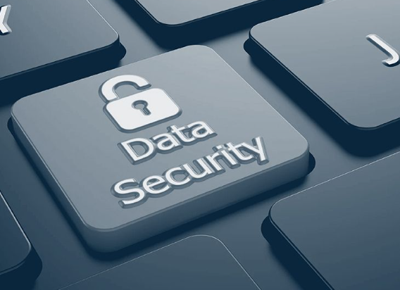
In this era of technology and connectivity, smart spaces play an important role in our lives. Whether at home or in the workplace, these smart systems make our lives easier and more efficient. Along with these advancements, the important matter of keeping our data secure arises. Ensuring the security and privacy of information is crucial. Recognizing the importance of safeguarding data in these environments is essential for all those engaged in this way of living.
Exploring Innovative Solutions for Smart Spaces
Intelligent environments, known as smart spaces, leverage technology to enhance responsiveness and connectivity by utilizing the Internet of Things (IoT). Through this integration of devices and systems, they facilitate communication and automation processes in settings such as residences, workplaces, and urban areas, with a focus on enhancing convenience and productivity in everyday life. However, this also introduces challenges related to safeguarding data privacy.
The Increasing Importance of Ensuring Data Security
With the rise in popularity of smart spaces, there is an increased demand for security measures to safeguard personal data collected by devices in these environments. It is essential to prioritize the security of this data to prevent identity theft and financial loss while protecting individual privacy. Unauthorized breaches can also lead to compromised data and potential harm through device access. Therefore, it is crucial to establish data security protocols without compromise.
Potential Risks and Threats
Smart environments encounter various dangers and risks, as cyber attackers frequently target these settings because of their interconnected nature. A single device vulnerability could compromise the system's security integrity. Typical risks include hacking attempts, phishing schemes, and malware intrusions. Furthermore, data breaches may occur if encryption or authentication measures are not robust enough. Mitigating these threats requires staying vigilant and taking action to safeguard the system's integrity and data privacy.
Tips for Improving Security
To safeguard data effectively and ensure security measures are in place, the following practices are important:
Encryption is essential in protecting information, as it renders data unreadable without the correct decryption key.
Enhancing security with strong passwords and authentication methods provides an additional layer of protection.
Regularly updating software and implementing patches is crucial to address vulnerabilities.
Utilizing firewalls and intrusion detection systems can prevent unauthorized access.
The Significance of User Training
It’s crucial to educate users on the importance of security practices, as this empowers them to make informed decisions and recognize potential threats effectively. Leveraging password changes and using multi-factor authentication can significantly improve security measures. Users should also be educated on safe browsing habits and the importance of data management and backup techniques. Education plays a key role in promoting a security culture and reducing the risk of breaches.
The Tasks Carried Out by Developers and Manufacturers
Developers and manufacturers have a vital responsibility to safeguard data privacy by integrating security measures into devices from the initial stages of development. Enhancing defense systems through firmware and software updates is essential. Building trust with users requires transparency in data collection and usage. It is important for manufacturers to focus on security during the design phase to reduce vulnerabilities. Seeking input from cybersecurity specialists can further enhance protection.
Compliance with Regulations and Industry Standards
For data security, it is crucial that organizations adhere to laws, regulations, and industry standards that provide guidance on protecting information and respecting privacy rights. Compliance ensures that privacy rights are respected and protected, with benchmarks for data handling set by standards like the General Data Protection Regulation (GDPR). Following these guidelines is essential in maintaining trust and credibility, requiring organizations to stay updated on evolving regulations to remain compliant.
Opportunities for the Future and Advancements
The potential of smart environments in the future is vast and exciting. As technology progresses, advancements will enhance automation and security, aided by artificial intelligence and machine learning technologies. These developments may improve biometric authentication for stronger security measures. However, these innovations will also introduce new challenges that demand ongoing innovation and adaptability to address emerging threats effectively.
Data protection is an aspect of smart space technologies that cannot be overlooked. Maintaining the confidentiality and security of individuals' data is essential for preserving privacy and well-being. Recognizing the threats and enacting security measures are key priorities. Achieving this requires collaboration between vigilant users, developers, and regulators. By placing an emphasis on safeguarding the security aspects, smart spaces can thrive as intelligent environments that benefit everyone involved.



(0) comments
We welcome your comments
Log In
Post a comment as Guest
Keep it Clean. Please avoid obscene, vulgar, lewd, racist or sexually-oriented language.
PLEASE TURN OFF YOUR CAPS LOCK.
Don't Threaten. Threats of harming another person will not be tolerated.
Be Truthful. Don't knowingly lie about anyone or anything.
Be Nice. No racism, sexism or any sort of -ism that is degrading to another person.
Be Proactive. Use the 'Report' link on each comment to let us know of abusive posts.
Share with Us. We'd love to hear eyewitness accounts, the history behind an article.